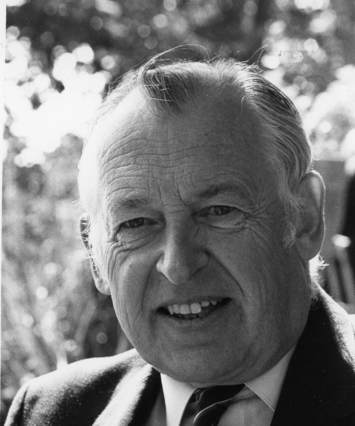Daniel Mottu lives in Geneva and was President of the Swiss Foundation for MRA from 1977-1987.
Last summer, along with many of my compatriots, I took part in the 50th anniversary celebrations of the MRA conference centre at Caux. The event, supported by so many people from around the world, made me feel proud to be Swiss.
The jubilee summer was hardly over before Switzerland was facing a barrage of criticism from Britain and the United States for its behaviour during World War II. Some critics, among them Jews, bitterly accused us of misusing our neutrality. In their eyes it had been no more than a facade that had allowed us to save our skins, while putting our industry at the service of Germany and recycling gold stolen by the Nazis from the countries that they occupied.
A recent BBC television documentary was so virulent in its attacks that it provoked an official protest from the Swiss ambassador to the UK, himself a member of a distinguished Jewish family. In Jerusalem, the President of the Jewish Agency, Abraham Burg, who has not spared the Swiss over recent months, stated that he had found the film 'unjust'. It led one to think, he said, that the Holocaust was the work of the Swiss, which of course wasn't the truth.
These criticisms have been hard for Swiss to bear, particularly those who have been committed for years to unselfish humanitarian or peace work. But, for my part, I have decided not to lose my cool, to try to look at things squarely and to ignore the obvious exaggerations and unfortunate errors of some of the critics. If we love and have high expectations of our country, we have to accept the shadow areas of her history and even of our national character.
INDIFFERENCE
This summer, in the Caux centre, the current President of the International Committee of the Red Cross, Cornelio Sommaruga, admitted that the tragedy of the Holocaust had been 'a failure of our whole civilization, including Switzerland and the Red Cross'. These words from someone who represents the best of Switzerland's humanitarian tradition make us think.
It is true that some dishonest people took advantage of those dark war years to make money; others gave in to the blackmail or pressure that the Germans could all too easily apply to our country, completely surrounded as we were. But our greatest failing was our indifference to the anti-Semitism which Hitler was applying in such a machiavellian way. This should have opened our eyes. But our authorities decided that Jewish asylum seekers could not be treated as political refugees. When we turned several tens of thousands away, we sent them to almost certain death. Doubtless if we had fully understood the fate which awaited them, we would have found room for them, despite the difficulties. (See page 12.)
The end of the war might have brought greater clarity of vision to the Swiss, but it was not to be, especially over the dormant accounts, the funds and valuables which had been deposited in Switzerland by Jews who vanished in the Holocaust. When their descendants approached our banks to reclaim their dues, some of them were treated in a disgraceful manner.
Such behaviour has brought our current problems onto us. We can only apologize, and repair what we can. That is the purpose of the Fund for the Victims of the Holocaust, set up by the major banks and some of the important Swiss industries, which now stands at SF265 million (GBP112 million).
In the international agreements which our government signed in 1946, we undertook to pass legislation to deal with these accounts. But this commitment ran into the wall of banking secrecy, then completely sacrosanct to our bankers. Their idea of secrecy was both too absolute and too rigid. These bankers would turn in their graves if they could see the lists of dormant account holders that were published in some of the world's leading newspapers on 23 July this year.
It is so important to go to the bottom of things. We are a small country, at constant risk of being pushed around by powers stronger than ourselves. We see it more clearly now with the danger of laundering Mafia and drug money. These people are skilled at getting round the laws that seem inadequate for current needs.
BEST DEFENCE
It is said that, during the war years, the Winterthur businessman and art collector Oskar Reinhardt was offered some great masters at knockdown prices. But he had reason to doubt their origin. He guessed that they had been stolen by the Nazis who were trying to sell them in Switzerland. Reinhardt had a sense of ethical values, and wouldn't touch the business. Such people are our best defence in the dangerous world in which we live today, as they were 50 years ago.
At the Caux conferences, we Swiss have been moved over the years by the honesty of our foreign friends-German, French, British, Japanese, South African-as they faced up to the shadows of their nations' past. As we do the same, we will be better equipped to face the challenges of the future.
By Daniel Mottu
English


